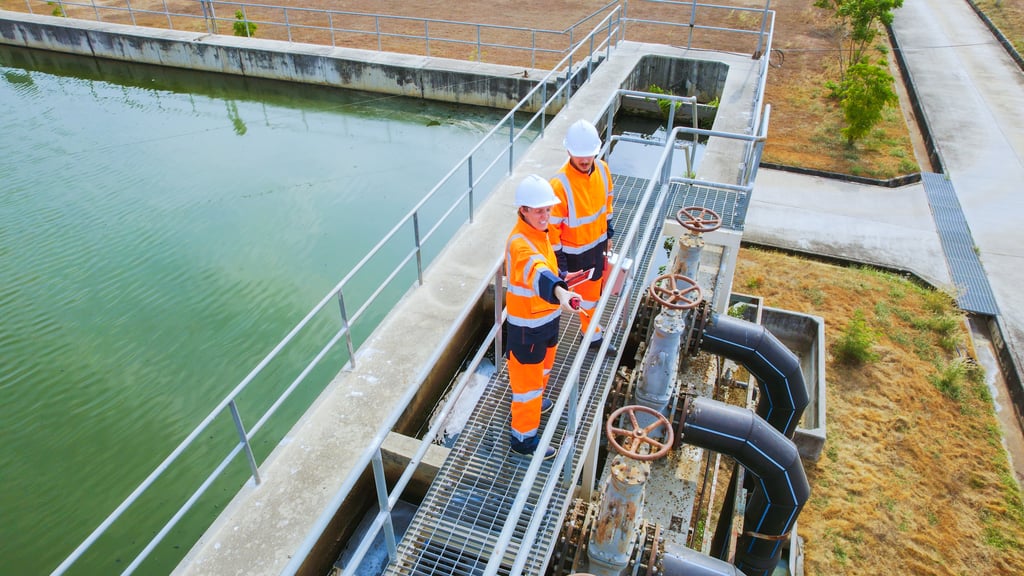On the build-up to COP28, Fotis Kampouris, LRQA Managing Director of Inspection Services, reflects on the energy transition and the journey towards sustainable practices.
By Fotis Kampouris, LRQA Managing Director for Inspection Services
LRQA will attend COP28 in Dubai this December, marking the first comprehensive global stocktake since the Paris Agreement seven years ago. Amidst international delegations, business leaders, legislators, activists and other stakeholders, there will be an abundance of debate and media scrutiny. However, it's imperative to shift focus from geopolitics to practical solutions.
António Guterres, United Nations Secretary-General, recently commented on the inadequacy of current carbon-cutting and ‘unwanted records on emissions, temperature and extreme weather.’ Instead, Guterres urged that we ‘start setting records on cutting emissions’ by expanding renewable energy capacity and phasing out fossil fuels with a clear timeframe.
Facilitating the energy transition must, therefore, be front of mind. From compliance with increasingly complex global and local regulations to integrating new technology for renewable energy production, it’s about providing practical support to businesses to thrive in a landscape where reducing carbon footprints is integral to long-term success.
With the target date for each country’s decarbonisation commitments drawing closer, COP28 will emphasise the urgency to deliver.
By Fotis Kampouris, LRQA Managing Director for Inspection Services
LRQA will attend COP28 in Dubai this December, marking the first comprehensive global stocktake since the Paris Agreement seven years ago. Amidst international delegations, business leaders, legislators, activists and other stakeholders, there will be an abundance of debate and media scrutiny. However, it's imperative to shift focus from geopolitics to practical solutions.
António Guterres, United Nations Secretary-General, recently commented on the inadequacy of current carbon-cutting and ‘unwanted records on emissions, temperature and extreme weather.’ Instead, Guterres urged that we ‘start setting records on cutting emissions’ by expanding renewable energy capacity and phasing out fossil fuels with a clear timeframe.
Facilitating the energy transition must, therefore, be front of mind. From compliance with increasingly complex global and local regulations to integrating new technology for renewable energy production, it’s about providing practical support to businesses to thrive in a landscape where reducing carbon footprints is integral to long-term success.
With the target date for each country’s decarbonisation commitments drawing closer, COP28 will emphasise the urgency to deliver.
Spearheading the energy transition
The energy sector faces a pivotal crossroads in the face of escalating climate change challenges. With the target date for each country’s decarbonisation commitments drawing closer, COP28 will emphasise the urgency to deliver. Opportunities lie in onshore and offshore, solar and wind installations, hydrogen as a clean energy carrier, and nuclear power, but they require accelerated investments. Progress also hinges on continued collaboration between governments, industry leaders, and the private sector to create policies, incentives, and funding mechanisms for the global deployment of renewable energy infrastructure.
In addition to financing challenges and changes in the regulatory landscape, implementing new programmes puts pressure on supply chains. If not adequately managed, rapid growth could lead to a shift from high-quality to rapid production. Competent workers, assets and infrastructure are also crucial to ensuring quality and safety. Another challenge is the presence of counterfeit, fraudulent, and suspect items in the production process.
Moreover, the energy sector faces a growing demand for Environmental, Social, and Governance (ESG) management. Addressing the social implications of the energy transition includes workforce retraining, investing in communities impacted by the decline of fossil fuel industries, and ensuring a fair and equitable distribution of the benefits of renewable energy adoption. Social responsibility must, therefore, be an additional priority on the energy sector's agenda.
A risk management partnership
LRQA’s experts have been pivotal in supporting clients’ renewable energy projects with compliance, assurance and advisory services for over 40 years. Having delivered over 600 projects across 25 countries, LRQA recently became the independent certifying authority for TenneT's DolWin6 wind energy project, involving evaluating and certifying the project from design to installation, including the crucial platforms that convert AC power from several wind farms to DC for the onshore grid.
LRQA has also supported plastics manufacturer, Emano Kunststofftechnik GmbH, in ensuring the quality and safety of an innovative green hydrogen storage vessel for Emano’s client, Apex Energy. This work directly contributed to Germany's national hydrogen strategy, putting one of the world’s most abundant elements at the heart of an ambition to be carbon neutral by 2050.
LRQA’s experts have been pivotal in supporting clients’ renewable energy projects with compliance, assurance and advisory services for over 40 years.
Beyond the energy sector
COP28 is described as a ‘moment of reckoning’ for the energy sector. But regardless of sector or size, global businesses and their supply chains are also tasked with navigating and supporting the energy transition process. There are several practical steps business leaders can take to mitigate the risks, seize the opportunities and ultimately deliver on environmental commitments:
Adopt a climate transition pathway: Frameworks for transitioning to more sustainable practices, such as increasing energy efficiency, shifting from coal to natural gas, or ramping up renewable energy production. These frameworks better position businesses to structure changes at multiple levels, from individual behaviours and technologies to policies and markets, to ultimately move to a fully renewable and zero-emission energy system.
Engage your partners: Businesses, especially those with large supply chains, should use their position to engage partners and influence sustainable practices. Engaging each value chain member to align with energy targets and action plans is crucial for driving impact.
Implement robust systems: Data quality determines the quality of emissions management. Companies must conduct more rigorous assessments to collect carbon data and adopt programs for data management and monitoring.
The energy sector's pivotal role in combating climate change demands a holistic approach. Embracing renewables, investing in storage and grid technology, prioritising efficiency, fostering collaboration, and responsibly transitioning from fossil fuels is imperative. The private sector's engagement is also crucial as we navigate this critical juncture. Industry leaders must engage with a clear structure and framework, collaborating across the value chain. It's time for industry to adapt and lead, ushering in an era where energy drives positive change.
LRQA’s experts have been pivotal in supporting clients’ renewable energy projects with compliance, assurance and advisory services for over 40 years.
Beyond the energy sector
COP28 is described as a ‘moment of reckoning’ for the energy sector. But regardless of sector or size, global businesses and their supply chains are also tasked with navigating and supporting the energy transition process. There are several practical steps business leaders can take to mitigate the risks, seize the opportunities and ultimately deliver on environmental commitments:
Adopt a climate transition pathway: Frameworks for transitioning to more sustainable practices, such as increasing energy efficiency, shifting from coal to natural gas, or ramping up renewable energy production. These frameworks better position businesses to structure changes at multiple levels, from individual behaviours and technologies to policies and markets, to ultimately move to a fully renewable and zero-emission energy system.
Engage your partners: Businesses, especially those with large supply chains, should use their position to engage partners and influence sustainable practices. Engaging each value chain member to align with energy targets and action plans is crucial for driving impact.
Implement robust systems: Data quality determines the quality of emissions management. Companies must conduct more rigorous assessments to collect carbon data and adopt programs for data management and monitoring.
The energy sector's pivotal role in combating climate change demands a holistic approach. Embracing renewables, investing in storage and grid technology, prioritising efficiency, fostering collaboration, and responsibly transitioning from fossil fuels is imperative. The private sector's engagement is also crucial as we navigate this critical juncture. Industry leaders must engage with a clear structure and framework, collaborating across the value chain. It's time for industry to adapt and lead, ushering in an era where energy drives positive change.
COP28 Series
Read more from our experts on COP28.



